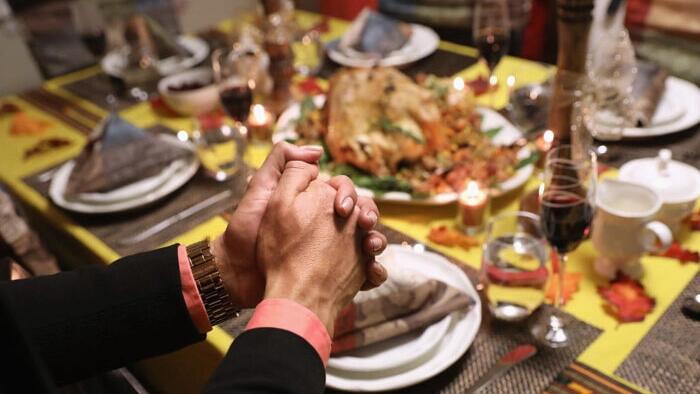The recent presidential election has evoked a wide array of emotions among Americans, with sentiments ranging from joy among supporters to anger and apprehension among those on the opposing side. As the Thanksgiving holiday approaches, many are left wondering how political tensions may disrupt traditional family gatherings. A recent survey conducted by Prolific highlights this concern, revealing that a significant number of Americans, approximately 20 percent, are planning to either avoid Thanksgiving dinners or limit their time with family due to potential political disagreements. While some have opted for vacations or solitary celebrations, others aim to spend the holiday with friends who share their views. These choices reflect the division within families influenced by stark political disagreements.
The Prolific survey, which polled over 2,000 American residents of varying demographics, indicated that while 96 percent of respondents felt confident about their voting choices, a substantial 62 percent disapproved of the current Biden administration, and a slightly larger 58 percent expressed unfavorable opinions about President-elect Donald Trump. This polarization is even more pronounced among younger voters aged 18 to 24, with 36 percent reporting increased tension within families due to political differences. Andrew Gordon, a senior consultant at Prolific, noted that this alarming trend aligns with broader observations of extreme political division in the electorate. He emphasized that politics has become an unavoidable topic in daily life and even among family dynamics during traditionally harmonious occasions like Thanksgiving.
Regional differences also emerge in the survey results, with over 23 percent of respondents in northeastern states citing heightened political tension within families post-election. In contrast, only California and Washington state reported similar levels in the West. This year’s political landscape, described by Gordon as a “perfect storm,” includes the polarizing election, varying leadership styles across party lines, and a global economic slowdown, all contributing to increasing dissatisfaction with government performance. Social media platforms further exacerbate the situation by making political discussion a constant presence in people’s lives.
Psychological insights from Tim Ives, a licensed psychoanalyst and family therapist, suggest that individuals should prepare for potentially fraught family interactions during the holidays. He advises people to set personal boundaries before engaging in conversations that could provoke stress. Recognizing that holidays do not always align with the idealized family gatherings depicted in popular culture, Ives stresses the importance of non-reactive engagement. He recommends minimizing alcohol consumption as heated discussions can escalate easily. Establishing a family rule against discussions on politics and religion may serve as a preventive measure to maintain a pleasant atmosphere during Thanksgiving.
Political polarization is not a contemporary phenomenon, as Ives recalls similar anxieties during past elections, such as the 1964 election cycle. His experiences also include counseling couples navigating differing political perspectives, underscoring the election’s ability to strain personal relationships. The survey results indicate that nearly half of those in southern and western states were not surprised by election outcomes, which highlights regional differences in political sentiment. Responses to the characterization of American democracy reveal a complex picture; a majority of respondents aged 45 to 54 answered affirmatively, but confidence wanes among older age groups.
The exploration of political sentiment during Thanksgiving by Prolific marks a significant step in understanding how these divisions impact social interactions, particularly during cherished American traditions. This year’s findings shed light on the evolving nature of holiday celebrations, as families may be compelled to reconsider how they gather in light of political pressures. Ultimately, this survey illustrates that an unprecedented intertwining of politics and family dynamics is reshaping the way Americans approach one of their most cherished holidays, prompting deeper reflections on personal relationships and communal traditions amidst a backdrop of significant political polarization.

